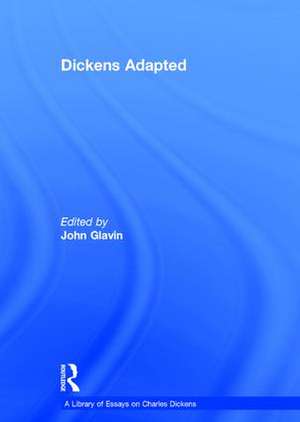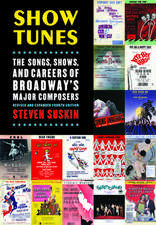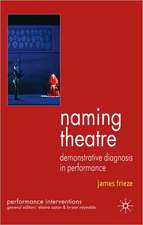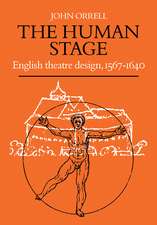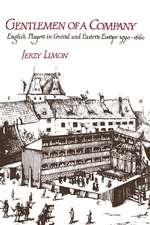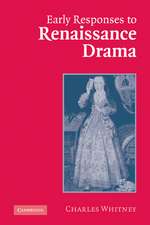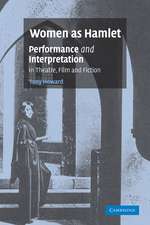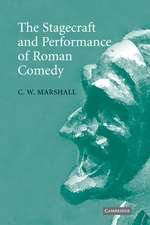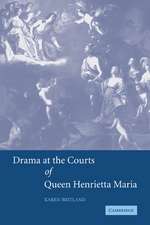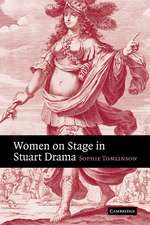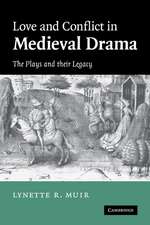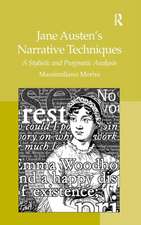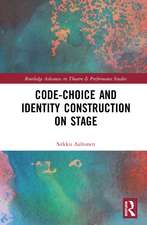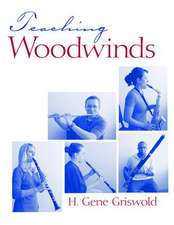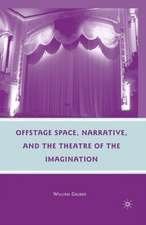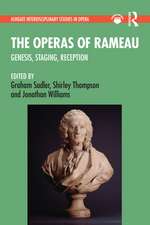Dickens Adapted: A Library of Essays on Charles Dickens
Editat de John Glavinen Limba Engleză Hardback – 28 iun 2012
| Toate formatele și edițiile | Preț | Express |
|---|---|---|
| Paperback (1) | 299.52 lei 43-57 zile | |
| Taylor & Francis – 22 mai 2017 | 299.52 lei 43-57 zile | |
| Hardback (1) | 1977.02 lei 43-57 zile | |
| Taylor & Francis – 28 iun 2012 | 1977.02 lei 43-57 zile |
Preț: 1977.02 lei
Preț vechi: 2657.01 lei
-26% Nou
Puncte Express: 2966
Preț estimativ în valută:
378.29€ • 396.04$ • 313.02£
378.29€ • 396.04$ • 313.02£
Carte tipărită la comandă
Livrare economică 07-21 aprilie
Preluare comenzi: 021 569.72.76
Specificații
ISBN-13: 9781409430940
ISBN-10: 1409430944
Pagini: 572
Dimensiuni: 174 x 246 mm
Greutate: 1.34 kg
Ediția:1
Editura: Taylor & Francis
Colecția Routledge
Seria A Library of Essays on Charles Dickens
Locul publicării:Oxford, United Kingdom
ISBN-10: 1409430944
Pagini: 572
Dimensiuni: 174 x 246 mm
Greutate: 1.34 kg
Ediția:1
Editura: Taylor & Francis
Colecția Routledge
Seria A Library of Essays on Charles Dickens
Locul publicării:Oxford, United Kingdom
Cuprins
Contents: Introduction; Part I On Adaptation: Adaptation studies at a crossroads, Thomas Leitch; Creative criticism: adaptation, performative writing and the problem of objectivity, Mary Poovey. Part II Screen (Large): Word and image: the articulation and visualization of power in Great Expectations, Jane Baston; Dickens in Denmark: four Danish versions of his novels, Graham Petrie; A weirdo, a rat, and a humbug: the literary qualities of The Muppet Christmas Carol, Hugh H. Davis; Cinematic Dickens and uncinematic words, Kamilla Elliott; Dickens, Eisenstein, film, Garrett Stewart; Historical picturesque: adapting Great Expectations and Sense and Sensibility, Susan Johnston; Dickensian orphan as child star: Freddie Bartholomew and the commodity of cute in MGM's David Copperfield, Scott Balcerzak; Fagin, the Holocaust, and mass culture; or, Oliver Twist on screen, Juliet John; Not telling the story the way it happened: Alfonso Cuarón's Great Expectations, Michael K. Johnson; Insurrection and Depression-era politics in Selznik's A Tale of Two Cities, Jason W. Stevens; Dickens from a postmodern perspective: Alfonso Cuarón's Great Expectations for Generation X, Shari Hodges Holt; 'I'm a wild success': postmodern Dickens/Victorian Cuarón, Ana Moya and Gemma López; 'Please sir, I want some more': Clive Donner's Marxist adaptation of Oliver Twist, Shari Hodges Holt; From book to film: the semiotics of Jewishness in Oliver Twist, Maria Cristina Paganoni. Part III Screen (Small): The never-ending story? Two Martin Chuzzlewits, Tore Rem; Writing after Dickens: the television writer's art, John Romano; Nicholas Nickleby, adaptation, rehearsal and catharsis, Luc Bouvard; 'La television des professeurs?' Charles Dickens, French public service television and Oliver Twist, Pamela Atzori; Queer beauty: illness, illegitimacy and visibility in Dickens's Bleak House and its 2005 BBC adaptation, Rachel Carroll; 'I have been true to you, upon my guilty soul I have': negotiating Nancy, 'hyperauthenticity' and 'hyperfidelity' in the 2007 BBC adaptation of Oliver Twist, Benjamin Poore. Part IV Stage: Reading, reciting, acting, Malcolm Andrews; Reading Victorian illusions: Dickens's Haunted Man and Dr Pepper's 'ghost', Helen Groth; The death of Nancy 'Sikes', 1838-1912, Sue Zemka; 'Can a fellow be a villain all his life?': Oliver!, Fagin and performing Jewishness, Sharon Aronofsky Weltman. Part V Page: Heritage in Peter Carey's Jack Maggs, Colette Selles; Missed encounters: repetition, rewriting and contemporary returns to Charles Dickens's Great Expectations, Ankhi Mukherjee; The 'crooked business' of storytelling: authorship and cultural revisionism in Peter Carey's Jack Maggs, Laura E. Savu; Discovering new pasts: Victorian legacies in the postcolonial worlds of Jack Maggs and Mister Pip, Beverly Taylor; Name index.
Notă biografică
John J. Glavin is Professor of English and Director of the Gervase Programs, Georgetown University, USA
Recenzii
’...a rich collection of previously published papers...In his introduction, Glavin provides the reader with a unifying theoretical framework...’ Dickens Quarterly
Descriere
From their first appearance in print, Dickens's fictions have become a wellspring of inspiration for the full spectrum of genres: plays, films, television specials and series, operas, new novels and even miniature and model villages. The essays in this volume break from earlier mimetic accounts to take the new works seriously within their own generic and historical contexts and reveal an entirely 'other' Dickensian oeuvre: one that has perhaps made Dickens better known to an audience of non-readers than to those who know the books themselves.
